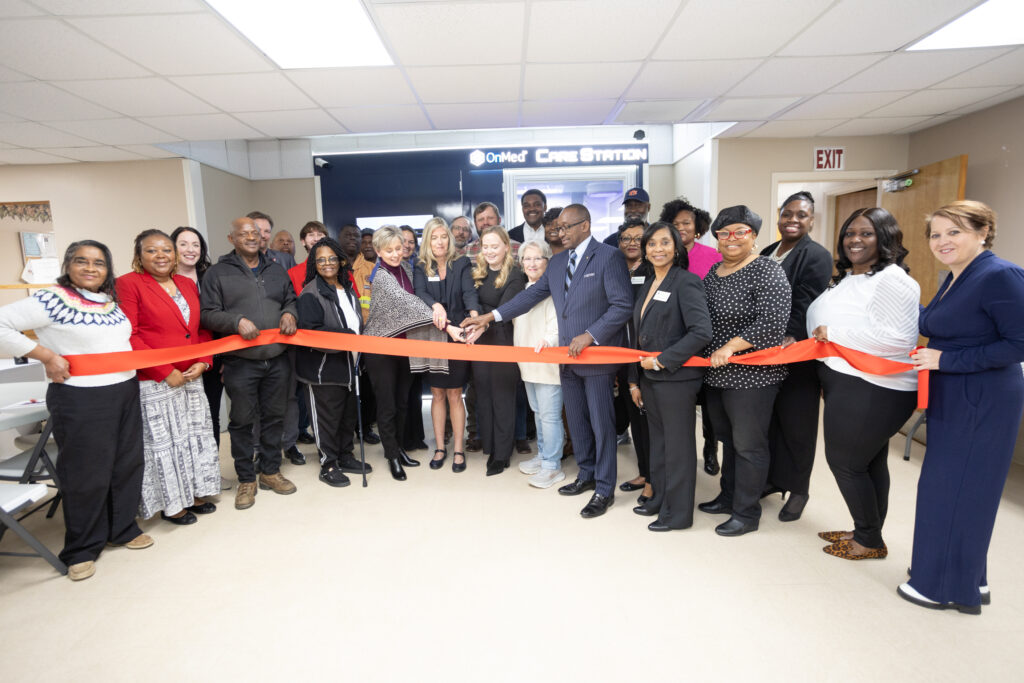
Story: Lisa Sollie
Excitement filled the air at the Gainesville Municipal Complex in Sumter County as the community gathered for the unveiling and ribbon cutting of the OnMed Care Station. This innovative telehealth solution provides patients with the same services they would expect in a traditional doctor’s office—including vital checks, diagnostic tools, and access to healthcare professionals, via a telemedicine interface.
The successful installation of this station marks the culmination of a collaborative effort between the University of West Alabama (UWA) through its Connecting Minority Communities (CMC) grant pilot program, Auburn University’s Rural Health Initiative, and OnMed. The CMC program, under the direction of Rodney Granec, UWA’s executive director of sponsored programs, research, and outreach worked in partnership with Hollie Cost, Auburn University’s assistant vice president for university outreach and public service, to make this project possible.
Through this partnership, Granec has played a key role in overseeing the installation of the care stations in both Gainesville (Sumter County) and Boligee (Greene County). According to Cost, without UWA’s involvement, Auburn’s Rural Health Initiative would not have been able to provide vital healthcare access to these rural communities.
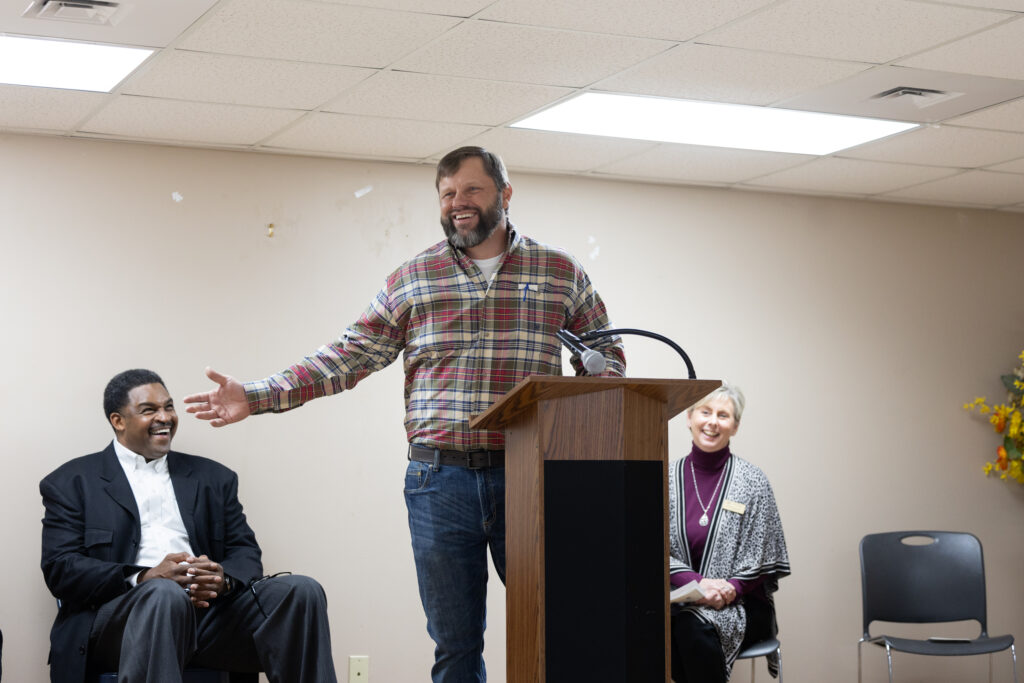
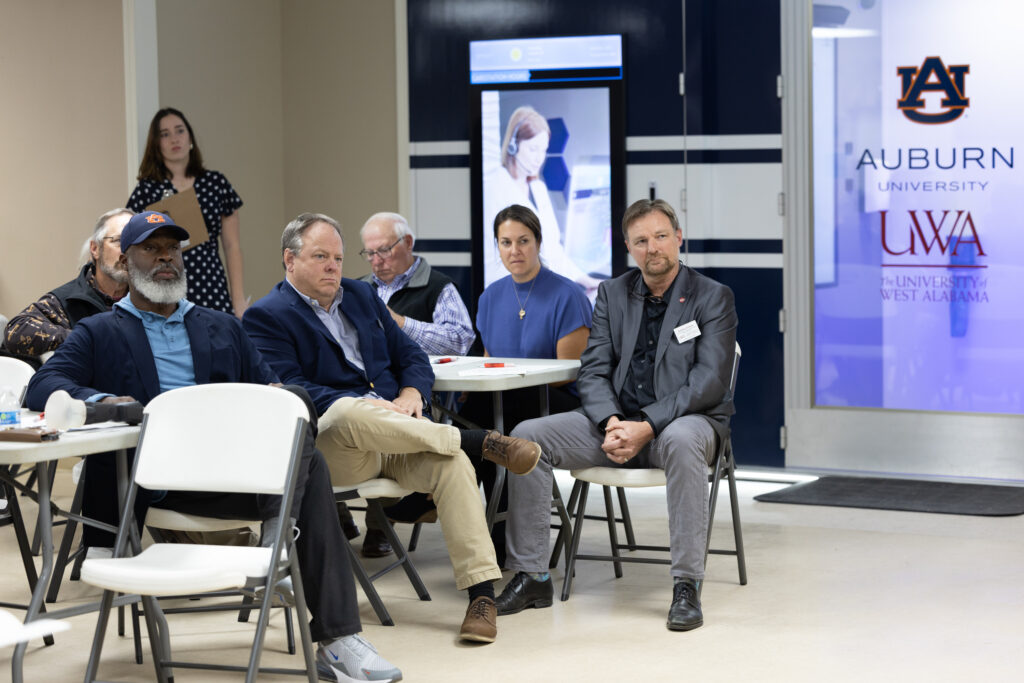
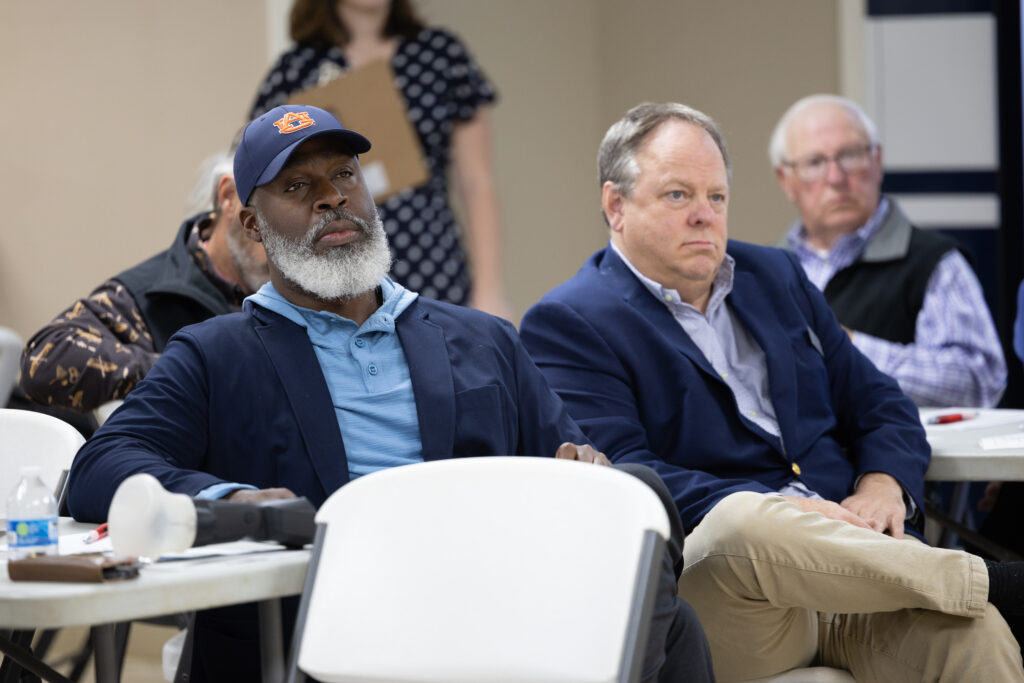
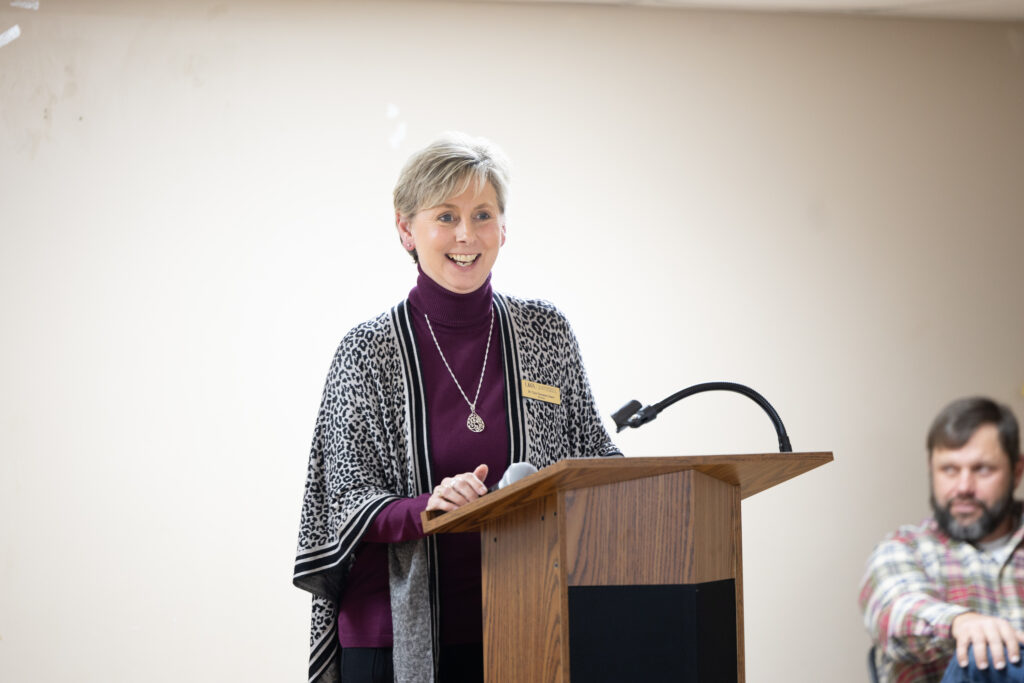
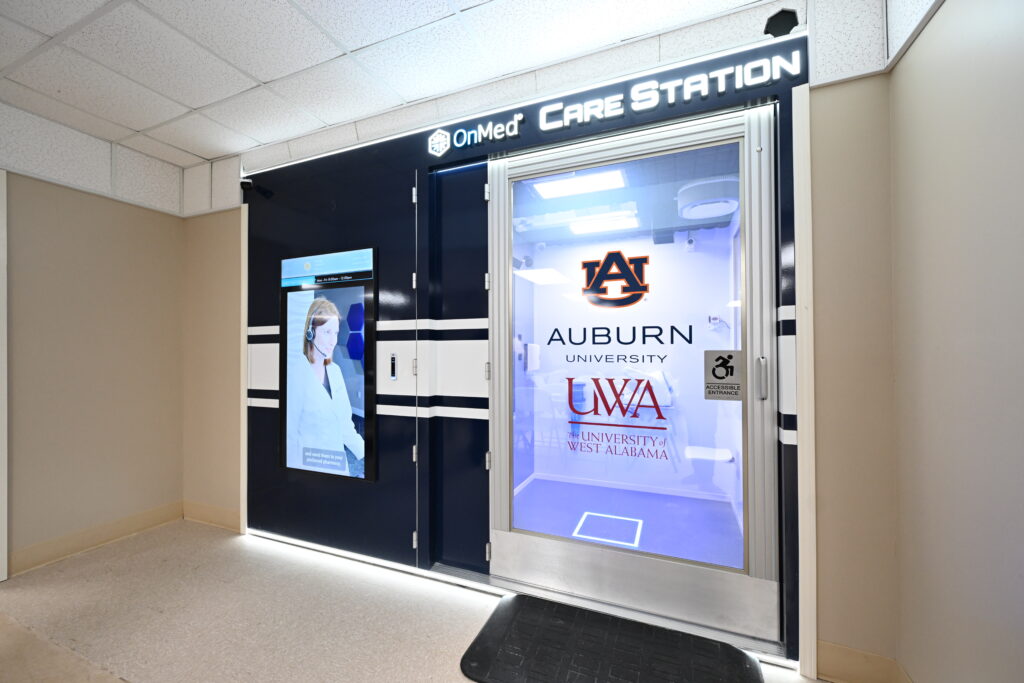
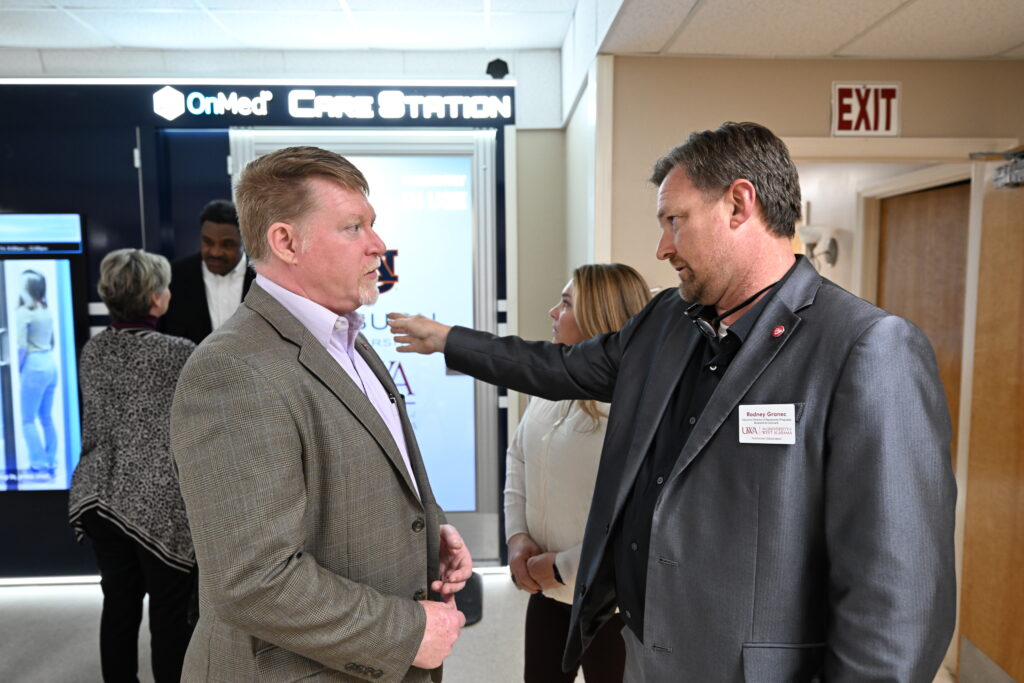
At the ribbon cutting, Gainesville Mayor Colter Nelson thanked Auburn University and OnMed for choosing his community and for their contributions to the project. But it was Granec’s work securing internet service for the station that truly stood out. “Rodney realized we didn’t have the internet service necessary to take full advantage of the project Auburn wanted to bring to our community,” Mayor Nelson shared. “Through the CMC grant, he partnered with Starlink and OnMed, working with UWA’s IT department to create a solution. We are grateful for his work and proud that he calls this community home.”
For UWA’s provost, Tina N. Jones, the event was about more than just the OnMed Care Station, it was a celebration for Sumter County, Gainesville, and the entire Alabama Black Belt region. “This ribbon cutting is tangible proof that when we work together—leveraging our resources, putting aside our differences, and viewing challenges as opportunities —we can improve the quality of life in our region,” she said.
Katie Smith, an assistant professor at UWA’s College of Nursing, a county commissioner, and a fourth-generation resident of Gainesville, believes the OnMed Care Station will transform healthcare access in the area. “For workers and farmers like my husband, who would never take time off to see a doctor, this station is a game-changer,” Smith explained. “It’s going to be invaluable for our community, especially for the middle generation and those just entering the workforce.”
As a nursing professor, Smith is also excited about the collaboration between UWA’s College of Nursing and the Gainesville OnMed site. Through this partnership, UWA nursing students will provide healthcare screenings and patient education twice yearly as part of a community service initiative. “This is a fantastic opportunity for students to gain hands-on experience in assessment and patient education while also giving back to our community,” Smith added. “I can’t wait to see how our students engage with and care for people from all walks of life who visit the OnMed site.”
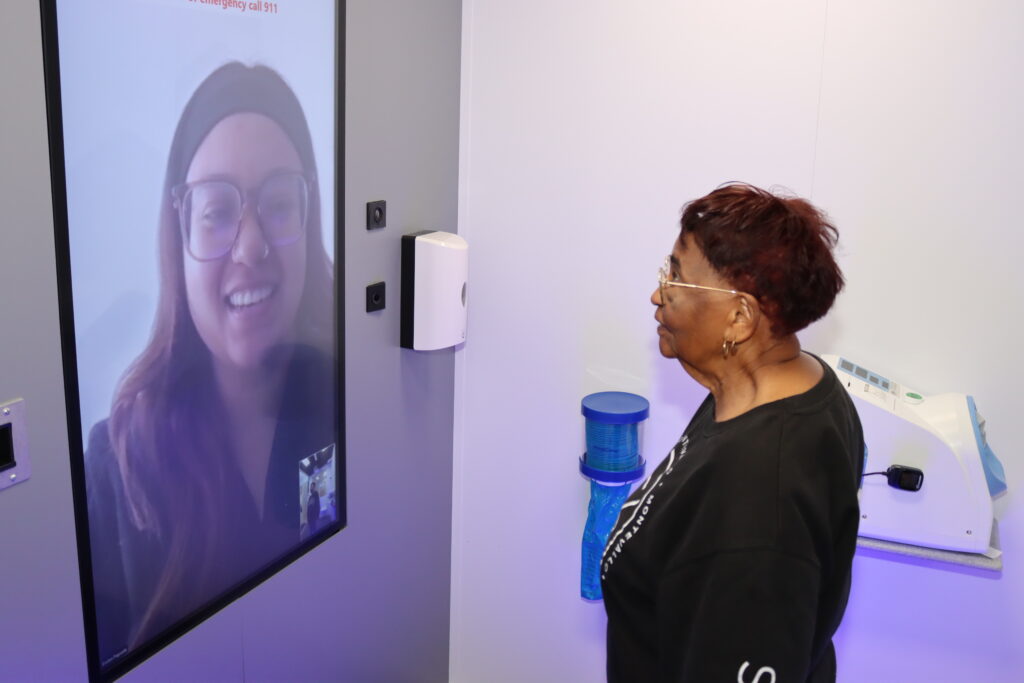
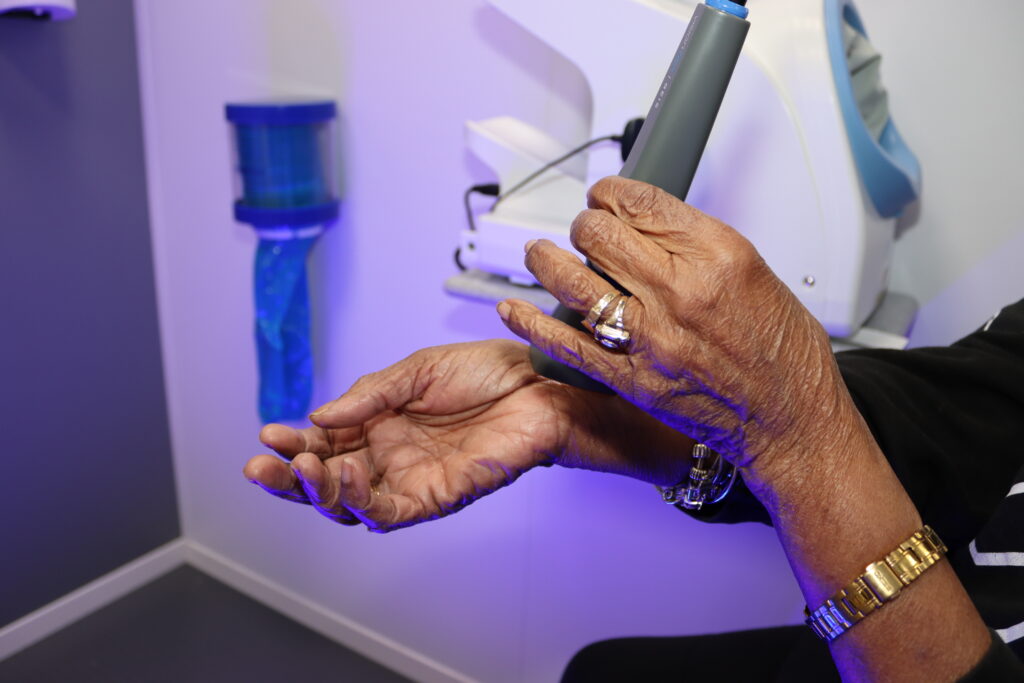
One of the first residents to take advantage of the care station was 84-year-old Bertha Pruitt, who used the station after suffering a burn while cooking. “When I went to the complex and spoke to the practitioner through the screen, I showed them the burn using the camera that comes down from the ceiling,” Pruitt recalled. “They prescribed some cream, which I picked up at the local drug store. It was almost like being in a doctor’s office, and the best part was I didn’t have to travel 50 miles just to get care.”
“The core of UWA’s mission,” notes Jones, “is service and outreach to our region. Like our partners, we are committed to rural renewal, revitalization and growth. We are excited that this care station is here, and we look forward to coming together on future projects like this one that make a real difference for residents in west Alabama.”
Connecting Minority Communities pilot program is federally funded through grants from the U.S. Department of Commerce’s National Telecommunications and Information Administration (NTIA). Allison Brantley, director of economic development for UWA’s Division of Economic and Workforce Development, serves as project director.